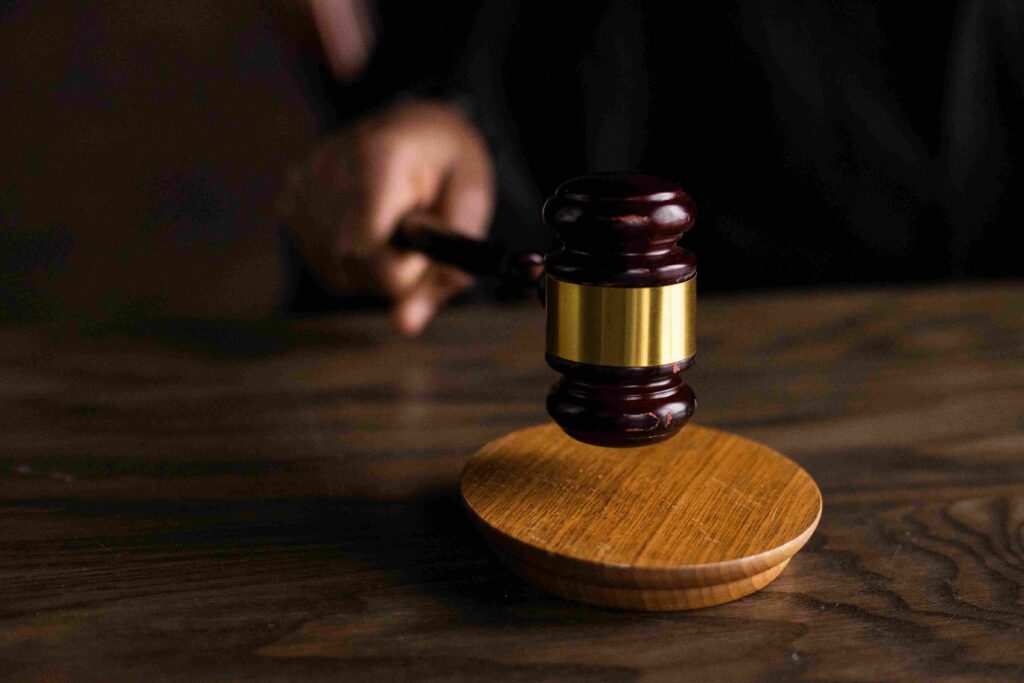The insanity defence remains one of the most complex and debated concepts within the UK legal system. It is a legal mechanism that allows defendants to argue that they should not be held criminally responsible for their actions due to a mental disorder that impaired their ability to understand or control their behaviour. In this article, we will explore how the criminal insanity defence works, its legal foundations, criteria, court procedures, and real-world implications.
What Is the Insanity Defence?
The insanity defence is a legal argument that claims the defendant was suffering from a mental condition at the time of the offence, rendering them incapable of understanding the nature of their actions or distinguishing right from wrong. Unlike diminished responsibility, which can reduce a murder charge to manslaughter, insanity can result in a special verdict of “not guilty by reason of insanity.”
This defence does not deny the act itself but challenges the defendant’s mental capacity during the crime.
Legal Foundation: The M’Naghten Rules
The foundation of the UK’s criminal insanity law lies in the M’Naghten Rules, established in 1843. These rules outline the criteria for determining insanity in legal contexts. Under these principles, a defendant is considered legally insane if, at the time of committing the act:
- They were suffering from a defect of reason,
- Caused by a disease of the mind,
- Which led them not to understand the nature and quality of their act, or
- To not know that what they were doing was wrong.
These conditions remain central to how the insanity defence is applied in modern UK courts.
Medical vs. Legal Insanity
A common misconception is that medical insanity and legal insanity are the same. In reality, they differ significantly:
| Aspect | Medical Insanity | Legal Insanity |
| Definition | A clinical diagnosis of mental illness based on psychiatric evaluation. | A legal determination based on the M’Naghten Rules. |
| Assessed By | Psychiatrists and medical experts. | Judges and juries, based on legal criteria. |
| Outcome | Treatment and diagnosis. | Legal verdict and possible detention under the Mental Health Act. |
This distinction means that not every person diagnosed with a mental disorder qualifies for the criminal insanity defence in court.
Procedure: How the Insanity Defence Works in UK Courts
The process of raising an insanity defence involves several critical steps:
- Raising the Defence – Either the defence or prosecution can raise the issue of insanity.
- Medical Evaluation – Psychiatric experts assess whether the defendant suffered from a disease of the mind at the time of the offence.
- Court Determination – The judge decides whether the legal test for insanity is met.
- Verdict and Outcome – If successful, the verdict is not guilty by reason of insanity, followed by possible hospital orders or supervision under the Mental Health Act 1983.
Possible Outcomes After an Insanity Verdict
When a defendant is found not guilty by reason of insanity, several possible legal outcomes may follow:
- Hospital Order – The defendant is detained in a secure psychiatric facility for treatment.
- Supervision Order – The individual is released under strict monitoring conditions.
- Absolute Discharge – Granted when the court deems the defendant no longer poses a risk to society.
Each outcome aims to balance justice with public safety and the defendant’s mental health needs.
Distinguishing Between Insanity Defence and Diminished Responsibility
While both concepts involve mental impairment, they serve different purposes in law:
| Feature | Insanity Defence | Diminished Responsibility |
| Applicable To | All crimes | Primarily murder |
| Legal Effect | Not guilty by reason of insanity | Conviction reduced from murder to manslaughter |
| Focus | Lack of understanding of the act | Reduced ability to control behaviour |
| Outcome | Hospital order or discharge | Prison sentence or hospital order |
Understanding this distinction is vital for both legal professionals and defendants seeking clarity on how mental conditions impact criminal liability.
Challenges and Controversies
The criminal insanity defence has faced ongoing criticism and debate. Key issues include:
- Outdated Legal Definitions – The M’Naghten Rules, though still in force, are nearly two centuries old and do not fully align with modern psychiatric understanding.
- Public Misconceptions – Many perceive the insanity defence as an “escape route” from justice, despite its rare and stringent application.
- Human Rights Concerns – Detention in psychiatric institutions can raise ethical and human rights questions regarding freedom and long-term care.
Law reform bodies continue to recommend updates to ensure the defence aligns with contemporary mental health and justice standards.
Notable UK Cases Involving the Insanity Defence
- Daniel M’Naghten (1843) – The case that established the foundational rules after M’Naghten assassinated Edward Drummond under delusional beliefs.
- R v Kemp (1957) – The defendant’s brain arteriosclerosis was deemed a “disease of the mind” under the M’Naghten Rules.
- R v Sullivan (1984) – Epilepsy was classified as a disease of the mind, expanding the definition of insanity.
These cases demonstrate how courts interpret and evolve the application of criminal insanity over time.
Modern Perspectives and Mental Health Law
Modern reforms aim to align insanity defence procedures with evolving mental health policies. The Mental Health Act 1983 and Criminal Procedure (Insanity) Act 1964 introduced structured mechanisms for managing defendants found insane, ensuring humane treatment and ongoing psychiatric evaluation.
There is growing advocacy for revising the M’Naghten Rules to reflect medical science and provide fairer outcomes for individuals with genuine mental impairments.
Conclusion
The insanity defence plays a vital role in ensuring that individuals who commit offences under severe mental illness are treated justly within the UK legal system. While rooted in 19th-century law, its application continues to evolve with advances in psychiatry and human rights principles. As legal and medical perspectives progress, the balance between accountability, justice, and compassion remains at the heart of how criminal insanity is understood in modern courts.



